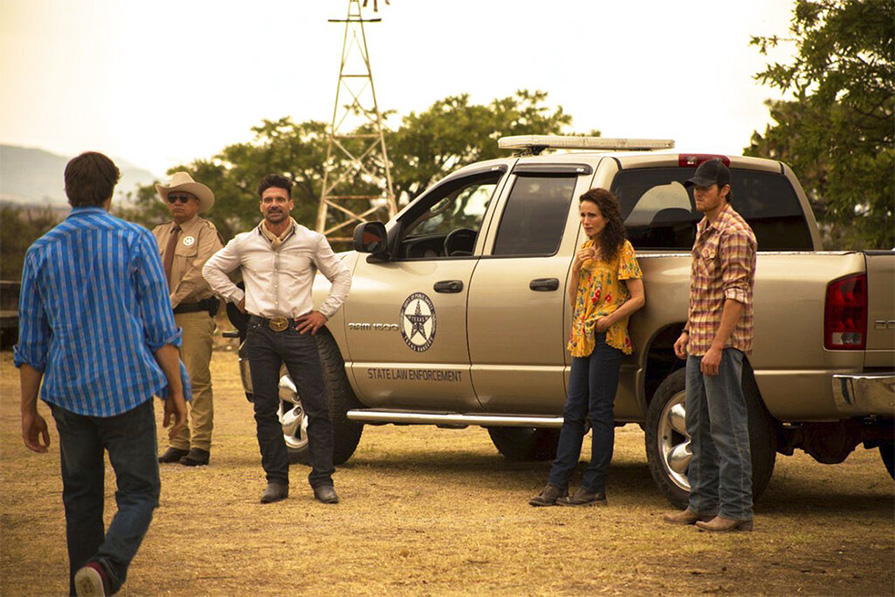It’s hard to make an unoffensive “two worlds collide” drama without drifting into sugary moralism or benign cliché. The toughness of the questions asked by these stories is often subverted by assumptions about how much comfort we require as viewers. As if the filmmakers don’t want us to suffer too much while they work out the answers for us. They do this by drawing clear lines between good and evil and, most importantly, placing reluctant characters on the wrong side to act as our proxies in the realizations and redemptions to come. It works this way in “Dances with Wolves,” and even in “Avatar.” The list of examples could go on for a while. It is filled with movies that strive to shine a light (however mild and undemanding) on issues of tolerance, forgiveness and the ability to change and grow as an individual or a culture. Important themes, all. And our southern border is as a good a place as any to make such a case.
The expository text at the opening of “No Man’s Land,” in theaters now, describes the film’s title and premise in one quick motion. It’s the liminal space that exists south of the wall but north of the border. For the Americans who live there, it can be a frustrating daily confrontation with national ambiguity. You get the sense, from this script at least, that they exist permanently on the wrong side of a one-way mirror. Watched and alone. For the Greer family, this often means chasing Mexican folks off of your land yourself. And, if necessary, doing so aggressively. One of these encounters goes horribly wrong and sends the younger Greer son on a journey of self-flagellation into the very country he’s been trained to view with suspicion and disgust. Full credit to director Conor Allyn for his treatment of the tragedy that sets up the film’s conceit. The paths his characters take to be in position for that moment are hard to accept, but he gives the terrible result of their choices plenty of weight.
To say that the rest of “No Man’s Land” is a succession of preposterous coincidences and blunt object lessons would be reductive. But only because that isn’t all it is. Almost lost amidst the perfectly timed interventions and perfectly thrown rocks are instances of true beauty. And of nuance, though perhaps not the intended kind. As Jackson (played by Allyn’s brother Jake) stumbles between his encounters with the people and places of Mexico, his bafflement at the varied riches of life down there is baffling to us. Because everything he experiences confirms what we already know about the place. He is taught while we are merely reminded. This makes Jackson not only unreliable as a narrator, but unconvincing as a student of his own unsubtle lessons. Of course I believe a young man could be blinded this badly by his father’s bigotry. And of course I believe that the same young man could be moved by remorse to re-map that inherited cultural DNA. But Jackson Greer is neither of those young men. As a character, he just doesn’t seem to have real blood in his veins.
There are sides to every story, and “No Man’s Land” sets out to tell them both. It’s admirable. The work put into fleshing out the Mexican perspective is welcome and helpful, particularly when Jackson’s actions lack fidelity. It’s a pity we don’t get to spend even more time with our southern neighbors in this movie. There were numerous roles and scenarios I would have enjoyed exploring further. Each could have made Jackson’s grief, and his struggle to atone through greater understanding, so much more resonant. Instead, we are expected to careen with him from one silly set-piece to another. All the while trusting that the American mythology around facing consequences like a man is enough to get him, and us, safely to the church on time.
“No Man’s Land” is a well-intended film and a fascinating locale. Life in that transitional section of the continent must be incredibly complicated. It deserves more stories like this one, but with hopefully better execution.






